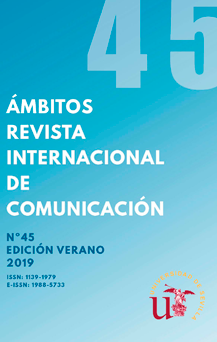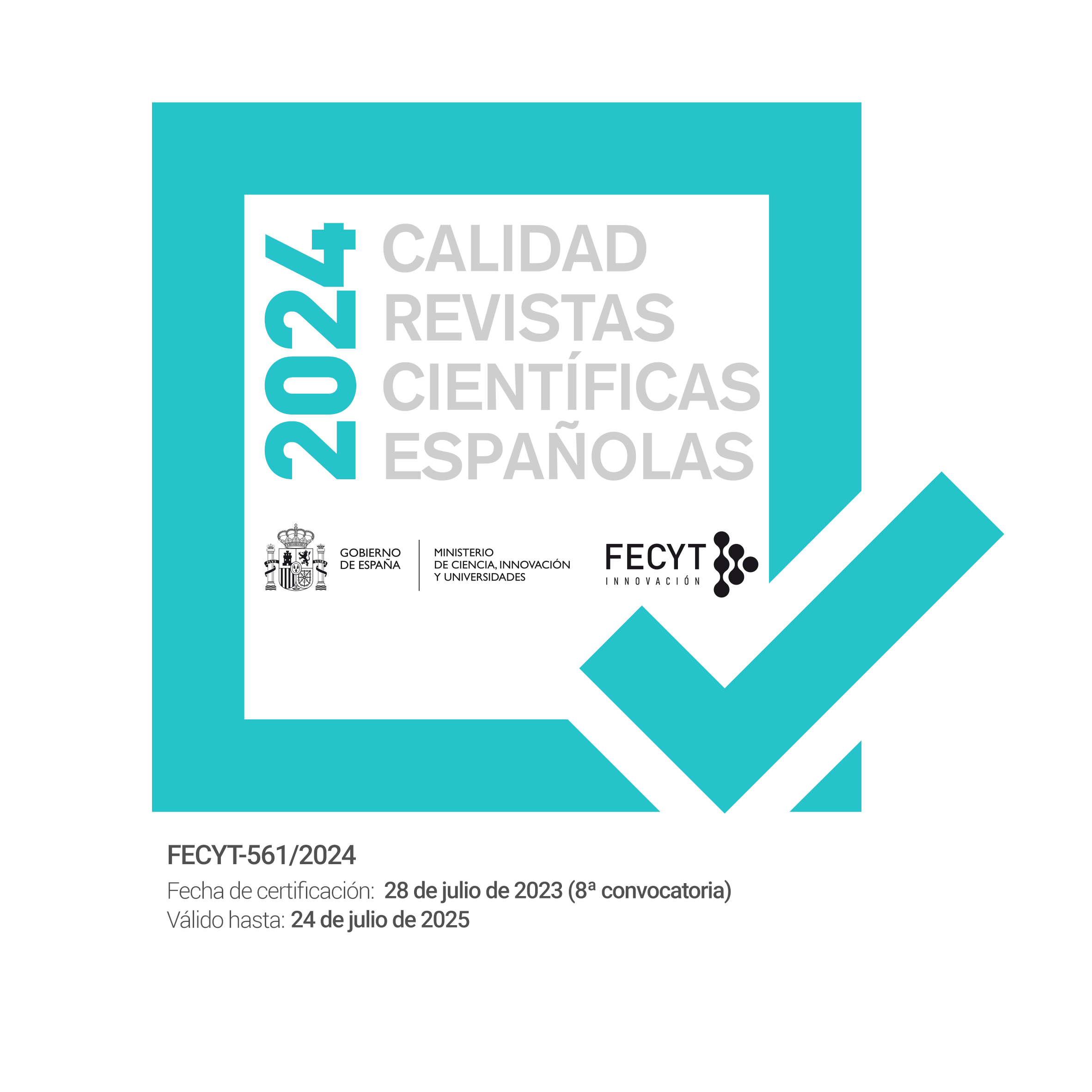On the problem of objectivity: between rationality, representation and ideology
DOI:
https://doi.org/10.12795/Ambitos.2019.i45.05Palavras-chave:
Objectivity, ideology, rationality, representation, philosophy of communicationResumo
Despite all the contemporary discussion about the relativity of the points of view, the value of "objectivity" seems still quite present mainly in the narrative of the media about itself. In this article, we will try to demonstrate how this notion of "objectivity" can be reinterpreted, in the limit, as an ideological expression. For this, we will focus on the notion of "objectivity" problematized by the Brazilian philosopher Marilena Chaui. We will make a journey based on specific writings of the extensive work of the philosopher, writings that were revised and improved in different texts in the last years. Our path will present, at first, an overfly by the definition made by Chaui about the term "ideology", going to the theme of its relationship with the idea of "objectivity", especially in regard to the role of the "objectivity" in the construction of the "ideology". Such concepts are quite opportune in the reflection on the new arrangements of public sphere after the explosion of digital communications. Because of this, we conclude with a brief discussion about the actual and complex problem of the post-truth and "fake news". We assume here the ongoing character of our analysis, beyond the option for the definition of this specific cut as a way to present one within the innumerable possibilities of discussion of the controversial issue of objectivity.
Downloads
Referências
Chaui, M. (2014). A ideologia da competência. In: A ideologia da competência. Belo Horizonte: Autêntica / São Paulo: Fundação Perseu Abramo.
Chaui, M. (2013). Crítica e ideologia. In: Manifestações ideológicas do autoritarismo brasileiro. Belo Horizonte: Autêntica / São Paulo: Fundação Perseu Abramo.
Chaui, M. (1981). Cultura e democracia. São Paulo: Moderna.
Chaui, M. (1989). Cultura e democracia. São Paulo: Cortez.
Chaui, M. (1995). O que é ideologia. São Paulo: Brasiliense.
D'Allonnes, M. R. (2018). La faiblesse du vrai: ce que la post-vérité fait à notre monde commun. Paris: Seuil.
D'Ancona, M. (2017). Post-vérité: guide de survie à l'ère des fake news. Paris: Plein Jour.
Ferraris, M. (2019). Postvérité et autres énigmes. Traduit de l'italien par Michel Orcel. Paris: PUF.
Horkheimer, M. (2002). Notes on science and the crisis [1932]. In: Horkheimer, M. Critical Theory: selected essays. Translated by Matthew J. O'Connell and others New York: The Continuum Publishing Company.
Horkheimer, M. (1992). Traditionelle und kritische Theorie: Fünf Aufsätze [1937]. Berlin: Fischer Taschenbuch.
Huyghes, F.-B. (2018). Fake news: la grande peur. Versailles: VA Éditions.
Lefort, C. (1979). As formas da história: ensaios de antropologia política. São Paulo: Brasiliense.
Lyotard, J.-F. (1979). La Condition postmoderne. Paris: Les Éditions de Minuit.
Marx, K.; Engels, F. (1998). The German Ideology [1846]. New York: Prometheus Books.
Vattimo, G. (2011). La societá trasparente [1989]. Milano: Garzanti.
Venturini, T. (2018). Sur l'étude des sujets populaires ou les confessions d'un spécialiste des fausses nouvelles. In: Sauvageau, F.; Thibault, S.; Trudel, P. Les fausses nouvelles: nouveaux visages, nouveaux défis. Comment déterminer la valeur de l'information dans les sociétés démocratiques? Québec: Presses de l'Université Laval.
Downloads
Publicado
Como Citar
Edição
Seção
Licença
Ámbitos. Revista Internacional de Comunicación é um jornal de acesso aberto, o que significa que todo o conteúdo está disponível gratuitamente para o usuário ou sua instituição. Os usuários podem ler, baixar, copiar, distribuir, distribuir, imprimir, pesquisar ou vincular ao texto completo dos artigos, ou utilizá-los para qualquer outra finalidade lícita, sem solicitar permissão prévia da editora ou do autor. Esta definição de acesso aberto está de acordo com a Iniciativa de Acesso Aberto de Budapeste (BOAI).

A menos que seja observado o contrário, todo o conteúdo da edição eletrônica é distribuído sob uma "Licença Internacional Creative Commons Attribution-NonCommercial-ShareAlike 4.0". Você pode consultar a versão informativa e o texto legal da licença aqui. Isto deve ser expressamente declarado desta forma, quando necessário.
No caso de aceitação do manuscrito, os autores cedem os direitos da obra para sua publicação à Ámbitos. Revista Internacional de Comunicación sob o contrato de licença Attribution-NonCommercial-ShareAlike 4.0 International (CC BY-NC-SA 4.0). Os autores retêm os direitos autorais e terceiros estão autorizados a copiar, distribuir e fazer uso da obra, desde que cumpram os termos e condições estabelecidos na licença
- Cite a autoria e a fonte original de publicação (revista, editora e URL da obra).
- Não utilizá-los para fins comerciais.
- Se você remixar, transformar ou criar a partir do material, você deve liberar suas contribuições sob a mesma licença que o original.
Mais informações podem ser encontradas em
https://creativecommons.org/licenses/by-nc-sa/4.0/deed.es


















